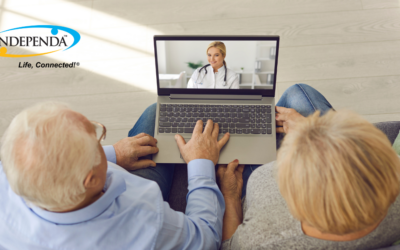Alzheimer's disease currently affects one in eight older Americans and has been deemed the "defining disease of the Baby Boomer generation" by the Alzheimer's Association. As such, a larger segment of the eldercare industry will undoubtedly be dedicated to Alzheimer's care in the years to come. While professionals in this field must always call upon great stores of compassion and patience, caring for older adults with Alzheimer's disease can be even more trying for loved ones and professionals.
Recently, NPR touched on the challenges of day-to-day Alzheimer's care while impressing the point that people with this condition can still lead full and rewarding lives. Winston and Pansy Greene are two former aerospace professionals in their 70s who are living out a comfortable retirement in a suburb of Los Angeles. A few years ago, Mr. Greene noticed that his wife was starting to show signs of memory loss. After her concerns were initially dismissed by her doctor, she was eventually diagnosed with Alzheimer's disease a year later.
"It's helping me a lot being active […] and doing my crossword puzzles," Mrs. Greene said of her efforts to keep her condition under control. She and her husband have also drawn strength from their faith, and Mrs. Greene regularly reads the Bible to keep herself mentally engaged, she told NPR. Mr. Greene, meanwhile, explained that he must make a conscious effort to be more patient with his wife if she asks him to repeat himself or doesn't recall a conversation from earlier in the day. He has also taken on new roles in their decades-long relationship, such as managing the finances.
Ultimately, though, the Greenes have chosen to manage Pansy's diagnosis by hoping for the best and cherishing the present.
This heartfelt story illustrates many of the obstacles faced by older adults with Alzheimer's disease, as well as the loved ones and professionals who care for them.
Dr. Richard Della Penna, Chief Medical Officer of Independa, weighed in on this issue:
"Reminiscence 'therapy' is a well-recognized tool to allow people with [this] disease [to] feel comfortable, connect with the past and share an experience with friends and the people who care for them. [Independa's] Angela TV is the best platform I know for doing this."
Contact us through our online form to learn more about how telecare may help older adults and the people who care for them.




